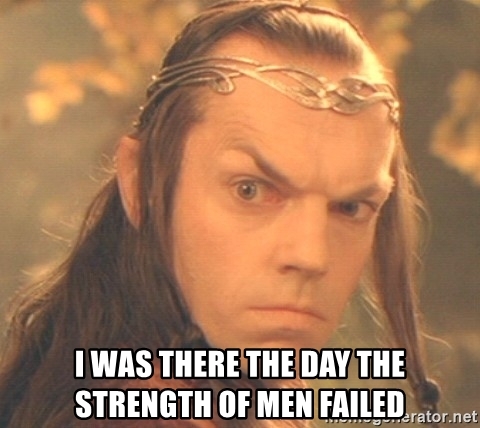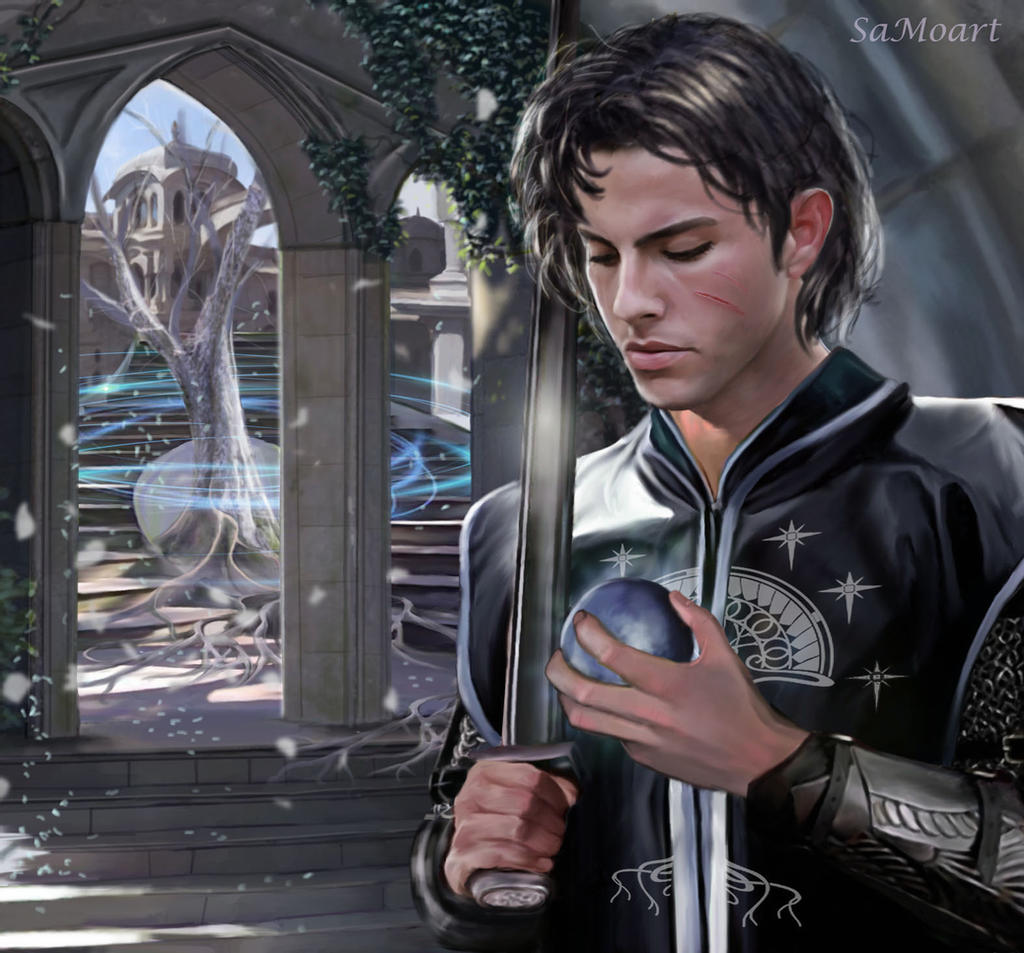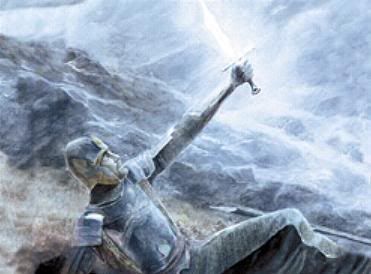The Fellowship of the Ring by J.R.R Tolkien (Harper Collins 1991) pp. 236-239
There is no doubt that Peter Jackson has a point to make about humankind in his film telling of The Lord of the Rings and it isn’t particularly complimentary. Or should we rather say that in his telling of the story the Elves do not have a particularly high opinion of us? Think of the scene near the end of the film version of The Two Towers in which Faramir is marching Frodo and Sam from Ithilien to Denethor in Minas Tirith and the Ring will fall into the hands of an embittered old man. As the hobbits are dragged along you hear Galadriel voicing her opinion that men are weak. And this merely echoes what Elrond has already said in the Council scene in which he describes how Isildur took the Ring from the hand of Sauron but was too weak to do what should have been done and to cast it into the Fire of Orodruin, of Mount Doom.

Peter Jackson places his emphasis upon weakness. It is the weak who are corrupted by the Ring. The strong are able to resist it. Tolkien tells the story of Isildur differently and more tragically. Isildur is one of the most heroic of Tolkien’s great characters. When Sauron was a prisoner in Númenor near the end of the Second Age he succeeded in corrupting its king, Ar-Pharazôn, playing upon his envy of the immortality of the Elves and his pride in his own greatness. Sauron turned the Númenoreans away from their faithfulness to Illuvatar and their trust in the goodness of the gift of mortality and he turned them to the worship of Morgoth, of darkness, and to the practice of human sacrifice. But there were always a small group that remained faithful to their ancient friendship with the Elves and their trust in the gift of Illuvatar. These were led by Elendil (whose name means Elf-friend) and his two sons, Isildur and Anárion. At all times this faithfulness was a matter of great personal risk but when Sauron persuaded Ar-Pharazôn to destroy Nimloth the Fair, the tree descended from the great trees of light in Valinor and a gift of the Valar to Númenor, it was Isildur who rescued a sapling of the tree, being wounded almost to death as he did so. And it was Isildur who stood alone by his father’s body on the slopes of Orodruin when all seemed lost. Gil-galad was dead. Anárion was dead. Elendil was dead with his mighty sword, Narsil, lying broken beneath his body. And it was Isildur who, taking up the shards of Narsil, was able to cut the Ring from Sauron’s hand and so brought about a great victory and a diminishing of Sauron that lasted much of the Third Age of Arda.

At all times we see Isildur willing to lay down his life for the cause of faithfulness. Indeed not only was he willing to do this but he was always the one to risk everything even when it seemed that all hope was gone. But at the end he fell. “This I will take as weregild for my father, and my brother,” he says as he takes the Ring from Sauron’s finger. This I will take as a payment for the offence that Sauron has done to me and my family.

It is only the truly heroic who have the capacity to be truly tragic. The Greeks used the word, hamartia, to describe the flaw in the character of a hero that would lead to the hero’s fall. What was it in Isildur that lead to his fall? Was it that he had turned the great struggle against Sauron into something personal, hence his use of the word, weregild, a payment made to compensate personal loss? It might be thus, but what we can say is that it is not Isildur’s weakness that caused him to fall but his greatness. We might note here that St Paul uses this same word, hamartia, in Romans 3.23 to describe the human condition. And so we are reminded of Aslan’s words in Prince Caspian, “You come of the Lord Adam and the Lady Eve… And that is both honour enough to erect the head of the poorest beggar, and shame enough to bow the shoulders of the greatest emperor on earth.”